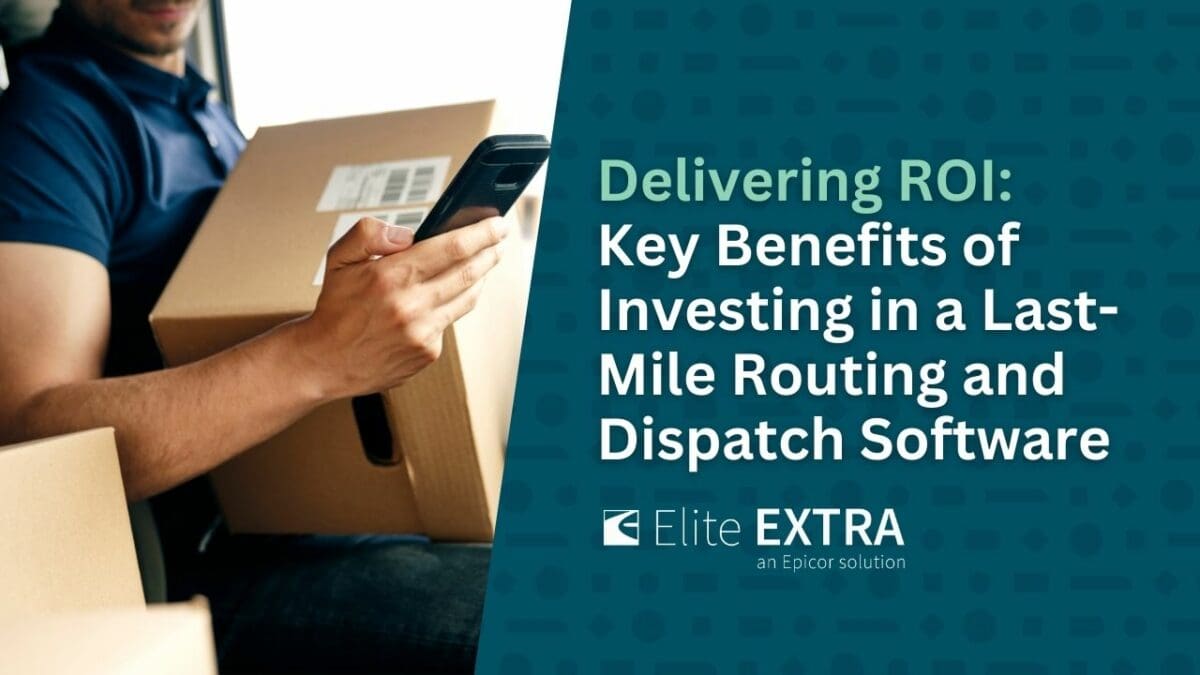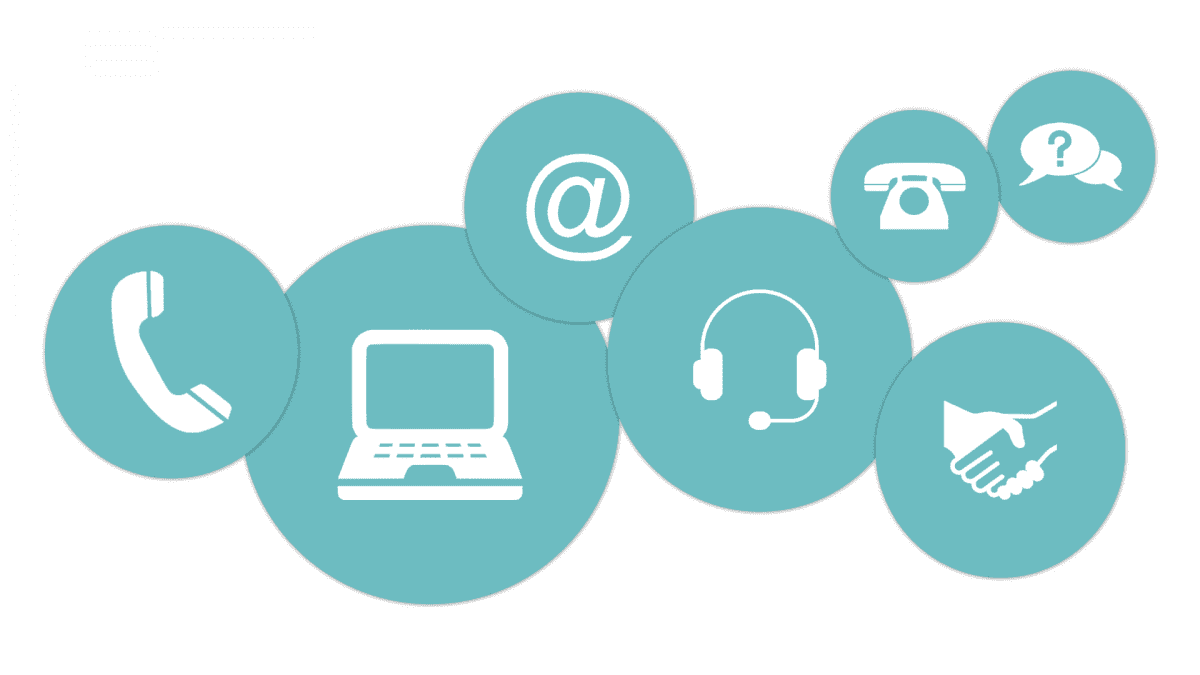
Definition, Leading Providers, and Benefits
In today’s complex logistics environment, efficient transportation management is essential to keeping supply chains running smoothly. As businesses face growing customer expectations, increasing operational complexity, and the constant pressure to reduce costs, many are turning to transportation management software (TMS) to gain a competitive edge. TMS solutions help organizations streamline transportation planning, automate execution, and enhance shipment tracking—all while improving visibility and control across the supply chain.
As logistics continues to evolve, the value of transportation management software is becoming more critical than ever. These powerful platforms not only simplify the movement of goods but also deliver real-time, data-driven insights that support smarter, faster decision-making. From cutting freight costs and accelerating deliveries to boosting customer satisfaction, TMS plays a pivotal role in optimizing transportation operations for businesses of all sizes.
In this guide, we’ll break down the fundamentals of transportation management software—what it is, how it works, and why it matters. We’ll highlight the core features, major benefits, and common challenges TMS helps overcome. Plus, we’ll introduce some of the top transportation management software providers and offer tips for selecting the right solution for your business. Let’s dive in and explore how TMS can elevate your logistics strategy and drive long-term success.
Looking for something? Skip ahead below:
- What is a TMS?
- Top Providers of Transportation Management Software
- Key Components and Features of TMS
- Benefits of TMS
- Common Challenges in Transportation Management
- Types of TMS Solutions
What is Transportation Management Software (TMS)?
Transportation management software (TMS) is a digital solution designed to streamline and optimize the planning, execution, and tracking of transportation logistics. At its core, TMS helps businesses efficiently move goods from origin to destination while reducing costs, improving visibility, and maintaining control over complex logistics networks.
Core Functions of TMS
A robust TMS offers several critical capabilities:
- Planning: TMS enables efficient load planning, route optimization, and carrier selection based on cost, service level, and delivery timelines.
- Execution: From automating shipment scheduling to generating lading bills, TMS simplifies the operational aspects of moving goods.
- Tracking: Real-time tracking and status updates provide complete visibility into shipments, helping businesses respond proactively to delays or disruptions.
- Reporting and Analytics: Customizable dashboards and reporting tools turn raw data into actionable insights, allowing businesses to monitor performance and identify improvement opportunities.
TMS in Broader Supply Chain Management
TMS plays a vital role within supply chain management (SCM) systems by acting as a central hub for transportation logistics. It integrates seamlessly with other tools like warehouse management systems (WMS) and enterprise resource planning (ERP) software, creating a cohesive ecosystem. By bridging these components, TMS enhances coordination across the supply chain, improves decision-making, and guarantees timely delivery of goods.
TMS is essential for businesses seeking to stay competitive and deliver consistent, reliable service.

Key Components and Features of Transportation Management Software
A powerful TMS provides critical tools to streamline logistics operations and deliver cost-effective, efficient transportation solutions. Here are the key components and features that make TMS an invaluable asset:
Route Optimization and Load Planning
Efficient route planning reduces fuel consumption, delivery times, and transportation costs. TMS uses algorithms to calculate optimal routes and plan loads, making sure vehicles are utilized effectively while meeting delivery deadlines.
Freight Cost Tracking and Cost Allocation
TMS simplifies the complex task of tracking and managing freight costs. It provides detailed cost allocation tools, breaking down expenses by shipment, carrier, or customer, giving businesses a clear view of their logistics spending.
Carrier Management and Automated Tendering
Managing carrier relationships becomes seamless with TMS. It automates the tendering process, selecting carriers based on predefined criteria such as cost, performance, and service level, securing the best fit for each shipment.
Real-Time Shipment Visibility and Tracking
Real-time tracking enhances transparency by providing live updates on shipment status and location. This feature allows businesses to address delays and inform customers with accurate delivery timelines proactively.
Analytics, Reporting, and Performance Metrics
Customizable dashboards and reporting tools offer actionable insights into logistics operations. TMS tracks key performance indicators (KPIs) to support data-driven decision-making, such as on-time delivery rates and freight cost trends.
Integration Capabilities
A robust TMS integrates with ERP, WMS, and other systems, creating a unified platform for seamless data sharing across the supply chain. This interoperability enhances coordination and reduces inefficiencies.
These features combine to create a comprehensive system that optimizes transportation, improves visibility, and supports better decision-making across the logistics network.
How TMS Works in Practice
TMS simplifies complex logistics operations by providing a structured workflow for planning, executing, and analyzing shipments. Here’s how TMS typically works in real-world applications:
Workflow Overview
- Planning Shipments: The process begins with route optimization and load planning. TMS evaluates delivery deadlines, shipment volumes, and cost efficiency to determine the best way to transport goods.
- Booking and Tendering: Once plans are finalized, TMS automates carrier selection and tendering, matching shipments with the most suitable carriers based on cost, performance, and service levels.
- Executing Shipments: As goods are in transit, TMS monitors shipment progress in real time, providing visibility into vehicle locations, estimated arrival times, and potential delays.
- Analyzing and Reporting: After delivery, TMS collects data on shipment performance, freight costs, and other vital metrics. These insights help businesses refine their operations and identify opportunities for improvement.
Common Use Cases
- Retail Distribution: A national retailer uses TMS to manage distribution from warehouses to stores, guaranteeing on-time deliveries and efficient replenishment.
- Manufacturing Logistics: A manufacturer shipping goods to suppliers and partners relies on TMS for real-time visibility and cost tracking across multiple shipping lanes.
- eCommerce Fulfillment: Online retailers use TMS to streamline last-mile delivery, optimize routes, and keep customers informed with real-time updates.
In practice, TMS serves as a centralized hub, orchestrating the logistics process from start to finish. Providing tools for each workflow step guarantees efficient, transparent, and cost-effective transportation management.
Dive deeper into the world of transportation management by downloading our latest white papers for free!

Top 10 Features to Look for in a Last-Mile TMS Software
In this white paper, we dive into the top 10 features you should be looking for when selecting a last-mile TMS solution for your operations.

Key Benefits of a Last-Mile Routing & Dispatch Software
Enhance your delivery ROI with Routing and Dispatch Software. Learn how to make your deliveries quick, accurate, and cost-effective.
The Benefits of Using Transportation Management Software
Implementing TMS gives businesses many important advantages, helping them streamline operations and stay competitive in a complex logistics landscape. Here are the key benefits that make TMS an indispensable tool:
Cost Savings and Improved Freight Spending
TMS reduces transportation costs by optimizing routes, consolidating shipments, and automating carrier selection. Offering detailed freight spending analysis helps businesses make smarter decisions and eliminate waste, meaning every dollar is well spent.
Enhanced Visibility and Data-Driven Decision-Making
With real-time tracking and robust analytics, TMS provides end-to-end visibility into the logistics process. This transparency allows businesses to monitor shipments, anticipate delays, and make proactive adjustments. The data-driven insights enable more informed decision-making to optimize future operations.
Improved Customer Satisfaction
TMS helps businesses deliver on-time shipments with accurate tracking updates, keeping customers informed and confirming they get their goods as promised. Companies can enhance customer loyalty and satisfaction by meeting or exceeding delivery expectations.
Efficiency Gains and Streamlined Processes
Automating time-consuming tasks like route planning, carrier tendering, and shipment documentation saves valuable time and reduces manual errors. TMS simplifies workflows, allowing teams to focus on strategic initiatives rather than operational bottlenecks.
Sustainability and Reduced Environmental Impact
TMS promotes greener logistics by optimizing routes to minimize fuel consumption and emissions. Some systems even integrate with electric vehicle (EV) fleets to further support sustainability goals, aligning businesses with modern environmental standards.
By combining these benefits, TMS empowers companies to operate more efficiently, improve customer experiences, and achieve long-term savings while staying environmentally responsible.
Common Challenges in Transportation Management and How TMS Helps
Managing transportation logistics comes with its fair share of challenges, from process inefficiencies to rising costs. TMS tackles these hurdles head-on, offering businesses the tools to overcome obstacles and streamline operations.
Manual Processes and Errors
Manual workflows, like route planning or shipment tracking on spreadsheets, are prone to errors and inefficiencies. TMS automates these processes, reducing the risk of mistakes and saving valuable time. By replacing manual tasks with digital solutions, businesses can focus on strategic decision-making rather than administrative burdens.
Carrier Capacity Constraints and Delays
Finding available carriers, especially during peak seasons or disruptions, is a constant struggle. TMS helps businesses address these constraints by providing access to a broader network of carriers and automating the tendering process. Real-time data allows firms to pivot quickly if delays arise, keeping operations on track.
Lack of Shipment Visibility and Data Silos
Data silos and limited tracking capabilities make it difficult to maintain visibility into shipment status and performance. TMS offers real-time tracking and centralized data storage, giving businesses a single source of truth. This transparency allows for proactive problem-solving and more informed decision-making.
Rising Transportation Costs
With fuel prices, carrier fees, and other expenses climbing, controlling costs is more critical than ever. TMS optimizes routing, consolidates shipments, and identifies cost-saving opportunities, helping businesses minimize transportation spending while maintaining service quality.
By addressing these challenges, TMS empowers businesses to operate more efficiently, reduce costs, and improve customer satisfaction in an increasingly complex logistics environment.
Types of Transportation Management Software Solutions
Not all TMS solutions are created equal. Businesses require different tools depending on their size, logistics complexity, and operational goals. Here’s a breakdown of the main types of TMS solutions to help you choose the right fit:
On-Premise vs. Cloud-Based TMS
On-premise TMS solutions are installed locally on company servers. They offer greater control over data but require significant upfront investment and IT support. These systems suit businesses with strict security requirements or highly customized needs.
In contrast, cloud-based TMS solutions are hosted online, providing flexibility, scalability, and access from anywhere with an internet connection. They often operate on a subscription basis, making them more cost-effective and more accessible to implement, especially for growing businesses.
Small and Medium-Sized Businesses vs. Enterprise-Level Solutions
TMS for small and medium-sized businesses (SMBs) focuses on simplicity and cost-efficiency, offering essential features like route optimization and basic tracking. These systems are designed to be user-friendly, minimizing the need for extensive training.
Enterprise-level TMS solutions cater to large operations with complex needs. They offer advanced analytics, multi-modal transportation capabilities, and seamless integration with other enterprise tools. They can handle massive shipment volumes and provide detailed reporting for informed decision-making.
Standalone TMS vs. Integrated Systems
A standalone TMS focuses solely on transportation logistics, making it ideal for businesses needing targeted solutions without additional complexity.
Integrated TMS solutions are part of more extensive supply chain management (SCM) platforms, connecting seamlessly with tools like warehouse management systems (WMS) and enterprise resource planning (ERP) software. These systems offer a unified approach, improving coordination across the logistics network.
Choosing the right TMS solution depends on your business size, operational needs, and long-term goals. Each type has unique advantages, and understanding these options is the first step toward making a wise investment.
Want more industry insights?
Subscribe to our newsletter to receive weekly last mile logistics insights directly to your email inbox each week!
Streamline Your Logistics with the Right TMS Solution
Choosing the right TMS is critical to optimizing your logistics operations and staying ahead in a competitive market. TMS offers powerful tools to reduce costs, improve visibility, and deliver exceptional customer service. By understanding your business’s unique needs and exploring the features and capabilities of top providers, you can make a strategic choice that drives efficiency and long-term growth.
Elite EXTRA is here to simplify that decision. With customizable, scalable solutions tailored to businesses of all sizes, Elite EXTRA provides the tools to optimize transportation, streamline operations, and exceed customer expectations. From route optimization and real-time tracking to seamless integration with your existing systems, our platform is designed to tackle the complexities of modern logistics.
Key Features and Pricing Models
Among TMS providers, pricing models vary widely depending on the features offered and the scale of your operations. Some platforms bundle route optimization, real-time tracking, and detailed reporting into comprehensive packages, while others specialize in niche capabilities like last-mile delivery or international freight management. Pricing structures can range from subscription-based SaaS (Software as a Service) models—ideal for small to mid-sized businesses—to larger, one-time licensing fees for on-premise systems.
Elite EXTRA offers flexible, month-to-month pricing customized to your operation’s size and usage, ensuring you only pay for what you need. This approach makes it easy to scale your transportation management solution alongside your business without being locked into long-term contracts.
Emerging Providers and Trends
New players in the TMS market are gaining traction, focusing on emerging needs like electric vehicle (EV) fleet integration and AI-driven predictive analytics. Providers offering highly customizable, cloud-based solutions are becoming increasingly popular as businesses seek tools to scale their growth.
Whether opting for a market leader or an emerging provider, understanding your business’s specific logistics needs is critical to selecting the right TMS for your operations.
Let’s Connect
If you’re ready to take your transportation management to the next level, let Elite EXTRA be your trusted partner. Discover how our solutions can transform your operations and position your business for success. Explore Elite EXTRA’s offerings today and see the difference we can make for your logistics network.
Sources
https://www.fleetowner.com/fleets-explained/article/55055324/what-is-a-transportation-management-system
https://www.fleetowner.com/technology/article/55017239/product-spotlight-transportation-management-systems







